|
It seems that there is something innate in our yearning for summer. As a child and student, I longed for the last day of school when I could trade in my early morning alarms and textbooks for sleeping in and spending time with friends. While summers in adulthood do not usher in quite the same change of schedule or freedom from responsibilities, I nonetheless eagerly await them. What is it that stirs this desire for summertime within us? What lessons of summertime can we bring into our spiritual lives? In the bustle of daily life it can be hard to find time for any rest, let alone that which truly restores and invigorates us. It is good that we work and labor, but we were not created for that alone. Jesus tells us, “Come to me, all you who labor and are burdened, and I will give you rest.” (Matthew 11:28) We can find this rest firstly in times of silence and prayer with our Lord. And, I think we can also find it in the long days of summer. The extra hours of sunlight or the extra days of vacation provide opportunities to lay our burdens of busyness down at the Lord’s feet. Far from eschewing or running away from responsibilities, these times of rest create opportunities to live out the rhythm of work and rest God desires for us. If summer affords you a bit more time to slow down, take some of these moments to reflect on how you can reorder your days to find a balance of work and rest to live throughout the year. How is the Lord calling you to deeper rest this summer? For many people the shorter, colder days of winter can be difficult to endure. The desire for the light of summer is tinged with a spiritual longing for a reprieve from the dreariness of winter. We can lift our faces to the sun after months of bundling up and hunching our shoulders against the cold. As composites of body and soul, these changes in the seasons do not just affect our activities, but translate to our emotional and spiritual lives too. While winter may have lent itself to a quiet reflectiveness or melancholy, the light of summer can incline our spirits towards a renewed levity. Even in the heaviest days of winter we know that summer will indeed come; just as in the heavy days of life we know that Christ’s promises of joy will be fulfilled. Have you noticed that your mood or prayer shifts with the seasons? What hopes are you bringing from the winter depths into this new season of light and warmth? In all the seasons we experience, whether naturally or interiorly, we are invited to praise and give thanks to God: a task we all know is easier said than done. One beauty of warm, sunny days is that they make that praise a bit easier to offer. It seems to me that we do not have to look quite as far to find joy as we may in the colder months. Summer wells up in us an awareness of God’s goodness. We can simply listen to the waves crashing at the beach, take in a perfect summer sunset, or revel in an afternoon spent outside with good friends. While the earth sings its summer song to the Lord, we can sing our song to Him too (see Psalm 96). As we continue through the summer months, take time to slow down and praise God in the goodness of the season. In what splendors of summer do you receive God’s love and glimpse His care for you? Despite all our longings for summer, it can often feel like it slips by too fast. This summer, which only just began seven days ago, I invite you to slow down and rest, shed the layers of life that can weigh us down, and open your heart to notice and receive all the goodness the Lord has in store for you in this season.
0 Comments
When the COVID-19 pandemic began and so much seemed outside of my control, I turned to prayer as a source of comfort, nourishment, and stability. Favorite Catholic podcasts, powerful homilies, Gospel-inspired music, Scripture reading, and devotions like the Rosary kept me grounded in a higher reality than the confusing, dark, and humbling one I faced. Perhaps I felt the need to overcompensate in a time when I couldn’t physically receive the Eucharist. The lack of physical Communion meant I searched for spiritual, mental, and emotional communion with the Lord in other ways I found fruitful. In this way, times of trial can bear much fruit—suffering sharpens our eyes to the eternal and true. It is sobering. Surrendered to God, suffering can be the most direct path of conversion and redemption. As the pandemic continued and I was able to adjust to my new “normal,” my sense of emergency slowly began to fade. I found ways to be comfortable and to continue meeting needs like friendship, worship, and rest. No, everything was not as it had been. Life was still a shadow of its former glory. And yet, I had found ways to cope. As this trajectory continues with the reopening of society in many ways, I have begrudgingly found that my deep prayer life has slowly faded. Becoming more of a checklist than a time of renewal, my prayer time is filled with distraction and noise. I’ve come to realize that I would rather fill my time with the noise—albeit good noise—of a Catholic podcast or homily instead of turning everything off and filling my time with God Himself. I’m more comfortable hearing others talk about God and their spiritual insights than talking to God. I’m also more comfortable talking AT God than WITH Him. I have a lot to say, but am not spending time listening or receiving. Finally, once I do settle down to pray, my tasks, chores, and rambling thoughts bombard me. My prayer time is filled with noise and distraction. Why is it easier for me to scroll through a newsfeed of beautiful images and consumer goods than to thumb through my Rosary meditatively? Why is it easier to respond at all moments to the latest texts in a never-ending group thread than it is to respond at all moments to the promptings of the Holy Spirit? Why is my heart more easily captured by the words of the media than by the Word of God? For perhaps the millionth time, I must face again a thorn in my side that prevents me from greater holiness: noise. “Noise, the grand dynamism, the audible expression of all that is exultant, ruthless, and virile—Noise which alone defends us from silly qualms, despairing scruples, and impossible desires,” says the demon Screwtape in C.S. Lewis’ classic, The Screwtape Letters. He continues, “We will make the whole universe a noise in the end. We have already made great strides in this direction as regards the Earth. The melodies and silences of Heaven will be shouted down in the end.” Lately in my life, it seems like Screwtape and his friends are succeeding. I’m having trouble hearing the melodies of Heaven amidst all the noise. And can’t we all admit to knowing this deep down—that much of our lives is an endless stream of noise and distraction threatening to drown out the still small voice inside? I reflect on these things once again while reading a powerful book and meeting virtually with other women--This Present Paradise: A Spiritual Journey with St. Elizabeth of the Trinity. Elizabeth, through the author Claire Dwyer, is shaking me from my complacency and passing through the distractions to help resurrect my heart. This young French Carmelite nun who lived over a hundred years ago mastered the interior life of prayer and encourages all to do the same—regardless of their vocation in life. I know I am called to more than what I’m filling myself up with; an hour of scrolling through items on sale or watching a home renovation show will never compare to fifteen minutes of virtual Adoration or a few decades of the Rosary. Any time consecrated to God is not returned unsanctified. In times of greater stability, comfort, or complacency, I’m also reminded of the Scripture passage about the wise virgins at the gate. We are called to fill our lanterns with oil as we await the Bridegroom so that we will be prepped and ready for His return. I have personally found that my preference for news feeds, shows, or internet browsing fills my lantern with something akin to water rather than oil, and so I am using this season of Ordinary Time to recommit to a quieter, more fruitful prayer life. Below are a few things I have found helpful for overcoming spiritual distraction and ensuring daily prayer:
As the world continues to reopen in ways that give us hope, I invite you to reflect on your prayer life throughout the pandemic months and set goals for yourself during this season of Ordinary Time. In the end, may we find that the melodies and silences of Heaven triumph over the noise of the world. The next forty days of Lent are Mother Church’s annual call to intense prayer, fasting, and almsgiving oriented towards embracing God as the center of one’s life and repenting of all which distracts us from Him. With the current crisis for the Church in the United States, it seems that the Church could really use a good spiritual renewal, cleansing, and renunciation of sin often focused on during the season of Lent. As parts of the Body of Christ[1], we are all too aware how an affliction experienced (or caused) by one part affects us all. Recall the words of St. Paul, “Rejoice with those who rejoice, weep with those who weep... Do not be conquered by evil but conquer evil with good.”[2] The Church is suffering but, just as she always has, she will ultimately be restored for the glory of God. As laity, you and I are key to addressing this scourge, along with the Church’s holy clergy and religious, and to affirming God’s presence in our lives not just in the Lenten season, but every day.
Though a time of repentance, Lent is not a time of despair or hopeless suffering; this season reminds us that God, although saddened by our repeated failings, never closes Himself off from offering mercy and love to the broken, the sinner, and the lost. Lent is not a diet, nor a fad of living without something trivial, nor even a temporary spiritual renewal; it must take root—free from the sin which prevents this—and be nourished over the coming weeks to strengthen us throughout the whole year. Above all, Lent prepares us for the celebration of Easter. Christ has died, Christ is risen, Christ will come again; the Church suffers, the Church is renewed, the Church shall be restored! The abuse scandal today may cause people to feel abandoned, angry, confused, and sad. “How can this be happening?” is certainly a question in our hearts and homes these days. It is important to remember that Jesus Christ, the same “yesterday, today, and forever,”[3] reigns over the Church. He is omnipotent, divinely good, and eternal; Let us take courage in the truth that our faith is ultimately in Jesus Christ. Because our Lord remains faithful to us[4] and ever close to His bride, the Church, He gives us the strength to recommit ourselves to renouncing the evil in our sight that threatens to drive us away from God and His Church. Lent is the perfect opportunity to facilitate spiritual renewal, not only for ourselves but also for the greater Church. Following the example of Jesus’ time in the desert before commencing His public ministry, the faithful are invited to reflect on the state of the Church, pray for strength, courage, justice, and healing, and even seek accountability in the governance of the Church. Personal penance can be made for our own failings, but reparation must also be made to address this scandal and to unify God’s people to prayerful and peaceful action in seeking God’s healing grace to move forward. Over the next 40 days, let us care for the Church by promoting healing among ourselves, supporting the afflicted and needy, addressing sin and divisions, and always proclaiming Christ to each other and the world. For more resources to accompany you throughout the Lenten season, please click here. [1] cf. Lumen Gentium, 33. [2] Romans 12:15, 21. [3] Hebrews 13:8. [4] cf. 2 Timothy 2:13. From October 3rd until the 28th, 2018 bishops from around the globe are gathering in Vatican City for the 15th Ordinary General Assembly of the Synod of Bishops. The Synod is an assembly of the world’s bishops who assist the pope by offering insights on important questions the Church is facing in a manner that preserves and promotes her teachings. A General Assembly of the Synod of Bishops is called “Ordinary” if its topic is “for the good of the universal Church” and seems to require the “learning, prudence and counsel” of all the world's bishops. For October’s historic meeting, Pope Francis dedicated the theme to “Young People, the Faith, and Vocational Discernment.” Although the young adults invited to participate were not voting members of the Synod, they had the opportunity to address the Order of Bishops as presenters and auditors. It can be useful to consider the gathering as a conversation that included involvement from bishops and small group sessions. These activities were a beautiful continuation of the dialogue and collaboration characteristic of the Second Vatican Council: of a Church embracing renewal throughout the Body of Christ.
Yet the vast majority of the Church was not in the Vatican participating in small groups, sharing experiences, or making presentations. While the meeting has been significant in its own right, it may not be on the forefront of most people’s minds a city—let alone an ocean—away. As we wait for the working documents of the meeting to be finalized and published, we may be asking how we can best support the work of the Synod from afar. As a young person myself, I think it is incredible that this demographic is being discussed and studied at length by the Church. The Synod inspires a unique opportunity to ponder young people’s place in the Church and world. The typical young person is preoccupied with studies or work, family and social obligations, and sorting out his or her place in an ever-changing world. Thanks to technology, the world is better connected in some senses, though what occurs daily in our physical sphere tends to represent the extent to which a young person may physically engage with the outside world. Why think about faraway gatherings when there is plenty to deal with right in front of you? You may also wonder, Why would anyone care about little ole me and what I do? But that’s exactly what—and who—the Holy Father is interested in hearing about. Over a year before the Synod was scheduled to meet, Pope Francis released his Letter to Young People and invited youth to “Make your voice heard, let it resonate in communities and let it be heard by your shepherds of souls.” To help facilitate gathering the input of young people, the Vatican Synod Office launched a special website and survey which invited responses that were incorporated into a working document. Furthermore, Pope Francis issued his latest Apostolic Exhortation, Gaudete et Exsultate, on the call to holiness in today’s world, which directly relates to the vocational aspects of the Synod. Seeking for something more concrete? Look no further than your own parish! The walls of a church are not designed to keep persons out, but to gather them in to live more actively in Christ and the Church Universal! Never doubt the awesome power of prayer: interceding for not only the participants of the Synod, but those around you whose needs you may know personally. Go a step further and offer your gifts, talents, time, and presence as a young person and give witness to charity. Show the world that young people are not self-absorbed but active and invested in promoting the good of humanity. Find others who want to make a difference. Invite them to pray with you, to volunteer in service, to catechize, and even just to share in the joys and fun of youth. Demonstrate that youth is not just a period of transition, but an opportunity to channel passion and energy in a meaningful and responsible way for the Church and world. A lesson from the 2018 Synod is that the Church wants to better minister to young people! Recognizing young people as a treasure not merely for the future, but for the Church here and now signifies their potential and important state in life. Instilling the values of the Faith in young people inspires them to more actively discern God’s call for them in holy vocations. The world is not perfect—neither is the Church—but recognizing the good that can be brought about and the ability to pick oneself up after falling short is a great gift God has uniquely given young people to witness! By growing in our vocation to holiness, we fulfill the mission and dream of this year’s Synod. What a joy it is to see young people take to heart the holiness that God has called them to. To learn more about the recent Synod on Young People, the Faith, and Vocational Discernment, please click here. “The Gospel of the Family: Joy for the World” is the theme that Pope Francis chose for the upcoming World Meeting of Families in Dublin, Ireland. One aspect that will be explored is how “the Christian family, by its witness to the life and love of Jesus, is a principal agent of evangelization to the world.” Catholic teaching calls the family, the “domestic church” (Lumen Gentium, 11) and parents are told in the Rite of Baptism that they are “the first teachers of their child in the ways of the faith.”
Others in the Church, clergy, those in consecrated life, and lay people, are supposed to be co-responsible with parents not only for teaching children and young people, but most especially, nurturing them, protecting them, and witnessing to them holiness of life. When this fails to happen whether in the past or in the present, as is once again showing itself in various parts of the world, then repentance, reform and renewal are not only needed, they are necessary. Repentance, reform, renewal, and greater holiness are not possible without co-responsibility among all the faithful in deeper conversion of life in Christ as our patron, St. Vincent Pallotti, envisioned over 183 years ago in Rome. We cannot do this on our own as Pope Francis reminded all in his apostolic exhortation, Gaudete et Exsultate: “Ultimately, the lack of a heartfelt and prayerful acknowledgment of our limitations prevents grace from working more effectively within us, for no room is left for bringing about the potential good that is part of a sincere and genuine journey of growth” (GE, 50). Since we are limited, we are challenged to do, with God’s grace, as St. Vincent Pallotti exhorts us to do: "We must begin to reform our lives by putting all our confidence in God." May the Charity of Christ urge us on! In Christ, Apostle of the Eternal Father, Fr. Frank Can you sense something’s coming? Throughout Lent, we’ve had the opportunity to empty ourselves in prayer, fasting, and almsgiving; we have mirrored Christ’s journey in the desert after His baptism. These past forty days have called us to remember to turn to God for His grace in our lives and for a spiritual renewal to cleanse us of all that distracts us from Him. While pouring ourselves out spiritually takes time to occur and be effective, so too should we scrutinize how we are replenishing ourselves in preparation for Easter.
The Church is on the verge of commemorating the week that changed the world: from Palm Sunday through Easter Sunday, the faithful are especially mindful of Christ’s ministry and example in the days leading to His crucifixion, entombment, and Resurrection. Although it happened two thousand years ago, the significance of Christ’s life and death can never be taken for granted or downplayed! What it accomplished for us, the atonement of humanity’s impossible debt by God Himself, continues this very day to be imbued with all the raw power, emotion, and sacrifice that Christ’s followers experienced in those days. Today, these holy days afford us the chance to walk with our Friend[1] once again: to withstand persecution with Him, to unite our sufferings to His sufferings, to be wounded in the shadow of His sacred wounds, and to forgive transgressors as He did from the Cross. No, Lent is not meant to be easy, but when we give our past failings or shortcomings over to the Lord during this time, He helps us walk with Him on His journey to Calvary and ultimately, to His Heavenly Father. In dying with Him, we rise with Him (2 Timothy 2:11-13). This period of Lent can be very refreshing and renewing if we let the process take place! When we give up a comfort of ours or develop an aspect of our spiritual lives, we force ourselves to re-evaluate our faith in God and trust in His Providence. Lent helps transform us and pushes us to grow in holiness. For one, we can make sure we are doing things for the right reasons. In addition, we can better understand our dependence on things we seek for happiness or comfort, be they lesser things or God Himself. The point of our Lenten prayer, fasting, and almsgiving is not an endless wallowing in self-pity, but preparation to welcome the Risen Lord who, by His supreme salvific Act, never ceases to fulfill us. On Easter Sunday, the Universal Church will rejoice once again because her Bridegroom has gained for her eternal life over death and suffering. If you feel as if your Lent has not been the best experience, don’t worry! Take time to reflect on your shortcomings and resolve to make real efforts to turn away from the sin and other distractions keeping you from God. He is ready to embrace you no matter your state in life and will never disdain true repentance. It is not too late to join Him on His journey to Calvary—He simply desires your companionship and will help you bear your own cross, as He did with Simon of Cyrene. Alongside Him, you may struggle, fall, and have to pick up your cross again and again. With Him, you may be lifted up as an object to be misunderstood or ostracized by others. But by dying to yourself for love of our King, you will be raised on the last day to reign with Him in Paradise. Perhaps—as the local authorities in Jerusalem sensed over two thousand years ago and the Church of Rome knows now and always—something indeed is coming, and we must rise from our ashes, pettiness, emptiness, and brokenness to meet it as promised to us by the God of Heaven and Earth Himself: ‘But arise, let us go hence. The enemy brought you out of the land of paradise; I will reinstate you, no longer in paradise, but on the throne of heaven. I denied you the tree of life, which was a figure, but now I myself am united to you, I who am life. I posted the cherubim to guard you as they would slaves; now I make the cherubim worship you as they would God. The cherubim throne has been prepared, the bearers are ready and waiting, the bridal chamber is in order, the food is provided, the everlasting houses and rooms are in readiness; the treasures of good things have been opened; the kingdom of heaven has been prepared before the ages.’ Questions for Reflection: Has your Lent been a fruitful and transformative one? If not, what are some ways you can use Holy Week as a preparation for Easter Sunday? For more resources on Lent and Easter, please click here. When they had gone ashore, they saw a charcoal fire there, with fish on it, and bread. Jesus said to them, ‘Bring some of the fish that you have just caught . . . Come and have breakfast.’ –John 21: 9-10 Easter is a season of renewal, wonder, and awe. The light of Christ conquers darkness, and new life overcomes sin and death. Hope lives, as Fr. Frank wrote, and “We are called to see with the eyes of faith in Christ.” Excitement wells up in me around this time every year when the world is waking up – new blooms appear on trees and in gardens while the sunlight lasts longer each day. Even more exciting than this change in nature is the joy that comes from the Easter Vigil, when the Church welcomes new members and we renew our baptismal promises. As the earth awakens each spring, this liturgical season also invites us to wake up to Christ’s triumphant love. The Gospel readings following Easter Sunday and the Easter Octave are cherished stories and intimate encounters with Jesus. He appears to his disciples when their eyes are still bleary from what happened on the Cross. He has indeed risen as he said. They are called to see and to not be afraid, to touch his wounds, and to ask him questions. One such story occurs before Jesus asks Peter if he loves him. Jesus first directs the disciples to an overwhelming catch on the Sea of Tiberius after a long night of unsuccessful fishing. Their nets overflow. They do not recognize him at first until this moment. Then, John tells Peter and the others, “It is the Lord.” Peter impetuously jumps out to join Jesus while the others row ashore. Sitting at the charcoal fire with fish and bread, Jesus invites the fishermen to come and eat breakfast. I imagine this moment filled with wonder and awe. The disciples will now be “fishers of men,” following Christ’s example and listening to his voice. In the forty days after his Resurrection, Jesus prepares his disciples for their new life of faith and evangelization. Like a dear friend, he gives them advice, teaches them, and even cooks for them. The meal on the beach must have tasted wonderful! This scene is a gift to the senses, like the coming of springtime and the exuberance of the Easter Vigil. What would it be like to be one of the disciples on that beach at daybreak? The cool breeze and the smell of fire caught up in the air, the morning colors dancing in the sky from the sunrise, the feeling of contentment the disciples must have had after catching so many fish, their weariness from a long night, and the sound of Jesus’ voice giving gentle direction. What would it be like to recall all the times you sat with him, to remember the day of his death, and then be present with him and eat fish and bread? This moment on the beach is an intimate encounter that we are also called to experience after the events of Holy Week and throughout all of our lives. During this fifty-day season, I invite you to listen, to sit, talk, and eat with Jesus on the seashore. Reflection Question: What signs of Easter have you noticed springing up in your life since Holy Week? How will you share and enjoy them with Jesus? One of the most exciting, profound, yet sometimes awkward and unnerving places of parish ministry involves welcoming new Catholics officially into the Church through what is called the Rite of Christian Initiation of Adults, or RCIA for short. Many parishes are now gearing up for the next season of RCIA, which generally runs from early Fall and concludes with the Easter Vigil (this year on April 15, 2017). Over the years, I’ve had the opportunity to serve and lead RCIA in a few parish settings and have been blessed to accompany some friends and family members through the process. But every year there are things I learn and need to be reminded of to facilitate a truly transformative time for the candidates and catechumens. Below, I’d like to offer some perspective, as well as a few pitfalls to avoid that have made a difference in the way the teams I’ve been a part of approach this important ministry. Speak their Language For those of us who grew up Catholic or actively learn and read about our faith, we become very familiar with the vocabulary and theology of the Church that is typically foreign and confusing to newcomers. Don’t assume people know what you are talking about, or what a word or acronym (even RCIA!) means. People are learning a new language of faith, which requires patience, clarity, and practice. Without patience and clarity, people feel alienated and lost, not impressed, and you risk having your faith come off as pretentious and antiquated, not living and effective. Teach Them to Pray Going off the last point, we should remember that prayer is the primary language of the faith. This is based in the ancient Catholic spiritual axiom, “Lex orandi, lex credendi.” The truth is, we assume people know how to pray, but prayer takes learning and practice, just like anything else. Prayer is necessary for living out the Catholic life beyond RCIA, but instead of just telling people to pray, we need to actively teach new Catholics how to pray by praying with them. Do some form of prayer together each week—the Rosary, Lectio Divina, a litany—to expose people to the richness of Catholic spiritual life. If we leave participants with anything, let it be the desire and ability to pray. Learn Their Story As passionate teachers of the faith, RCIA leaders often love to share their experience and favorite subjects about the Church and our faith. That’s important, but we often risk talking when we should simply be listening. Be mindful in giving the candidates and catechumens plenty of time to speak and share their story with one another, not just for a brief minute the first day, but also as part of an ongoing process that extends the whole course. Think Outside the Classroom Learning the content of the Catholic faith is essential, no doubt about it. But often our approach gives the impression that church teachings only live in the pages of textbooks. If all learning about the faith happens in the classroom, it has a tendency to stay there. Look for ways to make connections between Catholic beliefs and tradition and real action and practices. Learn about the corporal and spiritual works of mercy by scheduling time to go out as a team, do a few of them together, and then reflect on them. In Baltimore where I live and work, we are surrounded by some amazing Catholic historical and religious sites. We decided, “Why not incorporate that into our RCIA experience?” Instead of just reading about the saints, we planned field trips to the churches and homes of local saints. RCIA became a more memorable experience that expanded horizons and made people feel at home in their new faith family. Build a Strong Team Your most valuable asset is a dynamic and cooperative RCIA ministry team. I’ve heard of RCIA teams that actually actively disagree and challenge one another over church teachings in front of the class. Different personalities and gifts are important, but they should work in unity. Be mindful of what kind of personalities and gifts will resonate with the experience of people going through your program. Think Ahead New converts are frequently powerful and fresh witnesses to the joy of their faith and are often ready and excited to get involved. Before the RCIA process is over, start looking for opportunities to move new Catholics into the service opportunities and ministries of your parish. I have been taught lectio divina in the past, which I practiced fervently at one time and set aside as I pursued other spiritual interests. Lectio divina, though, has never been put together for me quite the way Fr. Chris Hayden (a New Testament scholar, author, and a priest in the Diocese of Ferns, Ireland) was able to do when I recently attended his seminar “Praying the Scriptures.” As a result, I have refreshed my own spiritual life and have reincorporated lectio divina into my spiritual repertoire. My point here is not to relay new facts but (as Fr. Chris would say) to rehearse what we already know – to cement who we are as a people who want to pray, who want to grow in the spiritual life.
Lectio divina (Latin for “divine reading”) was not something new to Christians but flowed out of the Hebrew method of studying the Scriptures, haggadah, or learning by the heart: “The word is very near to you; it is in your mouth and in your heart for you to observe” (Deut 30:14). While many Church Fathers stressed the prayerful reading of the scriptures, Origen is credited with the first use of the term “lectio divina” in the 3rd century: “While you attend to this lectio divina, seek aright and with unwavering faith in God the hidden sense which is present in most passages of the divine Scriptures” (Epistle to Gregory 4). Traditionally, lectio divina is a Benedictine practice of praying the scriptures that consists of reading, meditating, praying, and contemplating God’s Word in order to grow in our relationship with God. Saint Benedict first established it as a Monastic practice in the 6thcentury in which the four parts were not so much steps but rather moments prompted by the Holy Spirit. During the 12th century, the Carthusians formalized a scholastic approach (“the Monk’s Ladder”) of lectio (reading), meditatio (meditation/reflecting), oratio(prayer/responding), and contemplatio (contemplation/resting). We distinguish lectio divina from reading the Bible for enlightenment or encouragement, which we may do individually or together as in a Bible study group, and from praying the scriptures in common. Lectio divina is a practice that uses thoughts, images, insights, and inner silence to enter into a conversation with God. There are varying approaches to lectio divina, but in reality, simplicity is at the heart of the practice. After Vatican II and the document Dei Verbum that encouraged lay people and priests to use lectio divina, there has been a resurgence in its exercise. When we read Scripture, we should be doing so not just as an intellectual activity but also as a means of gathering its intention and meaning for our lives. Lectio divina will transform you for transformation is at its core – whether you realize that transformation consciously or not, and whether you reflect that transformation visibly or not. To appreciate fully lectio divina, we must understand prayer as a relationship between God and ourselves. Through prayer, we enter into the abiding relationship of unconditional love of the Holy Trinity. Three key underpinnings of our prayer life should be humility, heart, and listening. In prayer, we enter into humility, deflating our egos, realizing we are not God. Our humility helps us discern the true self from the false self. We continue to pray in order to break open our hearts to God, to realize what is going on inside ourselves for the heart of prayer is not what we get but rather what we become. We all know we should be receptive to God heeding the advice of Eli to Samuel, “Speak Lord, your servant is listening” (1 Sam 3:1-10), but many of us might prefer to tell God in prayer, “Listen Lord, your servant is speaking!” As anyone who has been successful with Christian meditation or contemplative prayer will attest, we need to make time and spaces for silence so we can listen. What should we do, though, if our prayers seem to be unanswered? Fr. Chris offers five guides or reasons to continue in prayer (he admits, certainly, there is not just five, but I find the five he presented crucial) even when our prayer life seems to be in a drought:
Because we have the Bible, the living Word of God, our spirituality is not a set of speculations. The Bible is our story – our metanarrative. Our metanarrative unites all of our individual stories into a collective under the overarching theme of God’s eternal love. We find today that the separate designations of yours and mine drive our society; today’s society is certainly no metanarrative, no uniting of us all. Within the Biblical texts, however, we find our collective and individual stories in which we participate along with Christ in the Trinitarian love. We can break our metanarrative into four acts: Act I: The beginning; Act II: The Fall; Act III: Redemption; and Act IV: Fulfillment. Our story begins with life (the “Tree of Life” in Genesis) and ends with life (the “New Order” in Revelations as found in Christ.) We find ourselves living in the drama between Acts II and III, that constant struggle of our lives that tugs between our disobedience and our obedience as we reach for that time of fulfillment. With this acceptance of the Bible as our metanarrative and our understanding of prayer, especially the reasons for continuing in prayer when our prayer life is dry, we can appreciate the power of praying the scriptures to transform our lives. Lectio divinabecomes, in reality, so simple.
Fr. Chris told me not to give him credit, but I must at least thank him for traveling to Great Falls, Montana, for sharing his joy of the faith, and for his stimulating way of presenting prayer, scripture, and the ancient art of lectio divina that inspired me to take a fresh look at how I pray the scriptures. I hope I have given him due credit by relaying the simplicity of lectio divina and its importance in helping us live out our shared metanarrative of God’s love. With Fr. Chris’ inspiration, I renew myself to the simplicity of lectio divina, enhancing my spiritual life, and I pray: God help us live our story, our metanarrative, as we pray for our transformation in You, our destination. Fawn Waranauskas teaches in the Catholic Catechesis Certificate Program for Saint Joseph’s College Online. This blog post was first published on May 27th on the St. Joseph’s College of Maine Theology Faculty Blog. Click here to learn more about our cooperative alliance with St. Joseph’s College Online One month ago, I had the privilege of celebrating Mass on the altar above the tomb of St. John Paul II. Our small pilgrimage group had requested a Mass at one of the altars, either in the crypt or in St. Peter’s Basilica itself. We never expected that we would be given this particular altar, and all in the group were rather excited. One of my friends, who is an American serving on the general council of his religious community, asked me how we had arranged it. He had been trying for months through various contacts in the Vatican. I told him how we asked simply for a Mass in the basilica. Of course, he was very surprised that no special arrangements had been made. I was simply thankful to the Holy Spirit for arranging it and giving both the pilgrims and me such an important spiritual opportunity. As we made our way to the altar of St. John Paul, we went by the tomb of St. John XXIII. I hope someday to celebrate a Mass on the altar above his tomb as well. Both are personal heroes of mine because of their efforts to expand the role of all in the Church, especially the laity, which was so central to the charism of the founder of my religious community, St. Vincent Pallotti. In his homily for their canonizations, Pope Francis spoke about the efforts of these two popes in this regard:
John XXIII and John Paul II cooperated with the Holy Spirit in renewing and updating the Church in keeping with her pristine features, those features which the saints have given her throughout the centuries. The renewal and updating of the Church called for by the Second Vatican Council, initiated by St. John XXIII, is central to the work of the New Evangelization as articulated by St. John Paul II. This work continued through the efforts of Pope Emeritus Benedict XVI, especially in the Synod on the New Evangelization, and is finding even greater momentum through the witness of Pope Francis. All of them, along with Blessed Paul VI, the teaching of the Council, and Church leadership in general, have called all of the baptized to engage in greater co-responsibility for the life of the Church and for the work of evangelization. When Pope Francis canonized St. John XXIII and St. John Paul II together, various pundits, both in Church and secular media, were quick to give their sometimes very simplistic analysis of the message that he was trying to convey. If there was any “message”, I believe that it is a continued or re-commitment to the on-going renewal of the Church in trustful cooperation with the Holy Spirit and in prayerful communion with the saints. St. John XXIII and St. John Paul II were both visionary leaders who put forward programmatic plans for not simply renewal of the Church as an institution, but renewal of all the baptized in faith and holiness who are called to go forth into the world and renew it as well. In 1959, St. John XXIII said, “Profession of the Christian faith is not intelligible without strong, lively apostolic fervor” (Princeps Pastorum, 32). The Second Vatican Council confirmed this understanding in Lumen Gentium through its teachings about the Universal Call to Holiness and the role of all the baptized in the mission of Christ. St. John Paul II was one of the drafters of the Decree on the Apostolate of the Laity (Apostolicam Actuositatem) along with the then Rector General of the Society of the Catholic Apostolate, Fr. Wilhelm Möhler, S.A.C. St. John Paul taught in his apostolic exhortationChristifideles Laici, which followed the Synod on the Laity in 1987, that The Second Vatican Council has reminded us of the mystery of this power and of the fact that the mission of Christ – Priest, Prophet-Teacher, King – continues in the Church. Everyone, the whole People of God, shares in this threefold mission’” (14). Sharing in the mission of Christ is not simply staying within the confines of the church building. Instead, especially in this time of the New Evangelization, all of the baptized are called to recognize that they are followers of the Christ who are sent on mission by him. In fact, Pope Francis even calls the baptized, in Evangelii Gaudium, “missionary disciples” (120). Fr. Frank Donio, S.A.C., is Director of the Catholic Apostolate Center and teaches for Saint Joseph’s College Online. This blog post was first published on February 4th on the St. Joseph’s College of Maine Theology Faculty Blog. Click here to learn more about our cooperative alliance with St. Joseph’s College Online To celebrate the Catholic Apostolate Center passing 50,000 "likes" on Facebook, Communications and Social Media Intern Andrew Buonopane created a list of 50 Ways to Enjoy your Faith. This is the second post in a five-part series where we'll share the whole list. Check back on the first Tuesday of the month for another installment! #39- Read or learn about Augustine’s Confessions Did you know that Augustine, a famous Church author and theologian, had a well-documented conversion experience? Take some time to research his story and learn about how he found Christ! #38- Marriage & Family Resources Next week is National Marriage Week! Visit the Catholic Apostolate Center’s resource page on Marriage and Family and explore ways to deepen your own marriage or family life! #37- Renew Faith in the Sacraments The sacraments are a vital part of our faith lives and aren’t just confined to milestones like First Communion and Confirmation. Renew your faith by increasing your awareness and participation in the sacraments. Go to Confession or consider helping distribute communion to the sick and homebound. As spring brings First Communion masses at your parish, consider attending one and remembering your own! #36- Discernment of Spirits Some people have heard of St. Ignatius’ Examen, but have you ever heard of the Discernment of Spirits? If not, take a moment to research more about this fulfilling spiritual exercise! #35- Private Prayer Prayer is an important part of our faith lives. But for many people, prayer often occurs in more organized settings such as Mass. Challenge yourself to make more time for private prayer! #34- Reflect on your day Our busy lives can sometimes cause us to not be able to stop and reflect. Try and set aside a moment at the end of the day to reflect on how your day went. #33- Find some good Catholic blogs Blogs are a great way to keep in touch with your faith. Learning from others experiences and deepening your understanding of the faith are easily attainable through blogs. Check out some of our partner affiliate blogs at the Catholic Volunteer Network or St. Joseph’s College Theology Blog! And of course continuing to follow along to this one! #32- Fasting Fasting is usually associated with the Lenten season, but did you know that fasting can be practiced throughout the liturgical year for a variety of reasons? #31- Feasting! Solemnities (which occur throughout the liturgical year) are days of celebration which can include feasting! While feasting doesn’t give you a free pass to eat junk food all day, consider learning more about upcoming solemnities and how you can celebrate them.
To read the previous installment in this series, click here: Part I Andrew Buonopane is the Communications and Social Media Intern at the Catholic Apostolate Center Have you ever wanted to start over? “My diet starts on Monday...” “My New Year’s Resolution of not drinking soda failed, so I’ll give it up for Lent in a couple of months...” “I’ll start not hitting the snooze button on the first of the month.”
A fresh start... Our society always seems to be longing for a “fresh start.” There’s a sense of pride and victory when we can commit to a new beginning. But why is it so difficult to remember that as Christians, by virtue of our baptism, we are called to a fresh start each day with Christ? Our first reading today reminds us that we are members of the Body of Christ our baptism. “For in one Spirit we were all baptized into one Body… and we were all given to drink of one Spirit” (1 Corinthians 12:13). The vocation we receive in baptism is not to lay dormant in our hearts; rather, it is a vocation that we should choose to live out each day. When we choose to intentionally live out the promises of our baptism, we are renewed by its waters and are given a “fresh start” to live as the Christians we long to be. In Christ’s love, it is never too late for a new beginning. We see this in today’s Gospel reading, when Jesus brings the only son of a widow back from the dead. And do you know what his call to new life was? Jesus said, “Young man, I tell you, arise!” (Luke 7:14). This is our call, too! Jesus says this to our hearts, “Young man, I tell you, arise!” “Young woman, I tell you, arise!” The fulfillment of our call is the way we live out the radical nature of our baptism. The Christian life is not easy, but that is why we are called each new day to “arise” and fulfill the promises of our baptism, “[serving] the Lord with gladness” (Psalms 100:2). What are you going to do today as Jesus calls you to “arise?” This is your fresh start. It may not seem like the perfect day to begin anew, but as Christians we know that today–this ordinary day–has been given to us by God and we are being called to “arise!” You have been called, you have been chosen. So “arise,” my friend, and let this new day be a new offering to our Lord. We can begin this fresh start by praying a Renewal of our Baptismal Promises, that explicitly remind us of our call as Christians. Please join me in praying this today. The Renewal of Baptismal Promises Taken from the Roman Missal, Third Typical Edition Do you renounce Satan? I do. And all his works? I do. And all his empty show? I do. Do you believe in God, the Father almighty, Creator of heaven and earth? I do. Do you believe in Jesus Chris, his only Son, our Lord, who was born of the Virgin Mary, suffered death and was buried, rose again from the dead and is seated at the right hand of the Father? I do. Do you believe in the Holy Spirit, the holy Catholic Church, the communion of saints, the forgiveness of sins, the resurrection of the body, and live everlasting? I do. And may almighty God, the Father of our Lord Jesus Christ, who was given us new birth by water and the Holy Spirit and bestowed on us forgiveness of our sins, keep us by his grace, in Christ Jesus our Lord, for eternal life. Amen. Alyce Anderson is a recent graduate of Texas A&M University. She is currently pursuing her Masters in Secondary Mathematics and Special Education while teaching at a local school in Washington, DC.  "John XXIII and John Paul II cooperated with the Holy Spirit in renewing and updating the Church in keeping with her pristine features, those features which the saints have given her throughout the centuries." - Pope Francis This past Sunday was a unique and amazing day of four popes, the two pope saints, John XXIII and John Paul II and the two living popes, Pope Francis and Pope Emeritus Benedict! The renewal and updating of the Church called for by the Second Vatican Council, initiated by St. John XXIII, and central to the work of the New Evangelization as articulated by St. John Paul II continued through the efforts of Pope Emeritus Benedict XVI, especially the Synod on the New Evangelization and finding even greater momentum through the witness of Pope Francis. Among them all, along with Paul VI, the Council, and Church leadership in general has called all of the baptized to engage in greater co-responsibility for the life of the Church and for the work of evangelization. Various pundits, both in Church and secular media, are quick to give their sometimes very simplistic analysis of why the two popes were canonized together and the message that Pope Francis is trying to convey. If there is any "message", I believe that it is a continued or re-commitment to the on-going renewal of the Church in trustful cooperation with the Holy Spirit and in prayerful communion with the saints. St. John XXIII and St. John Paul II were both visionary leaders who put forward programmatic plans for not simply renew of the Church as an institution, but renewal of all the baptized in faith and holiness who are called to go forth to the world and renew it as well. In 1959, St. John XXIII said, "Profession of the Christian faith is not intelligible without strong, lively apostolic fervor" (Princeps Pastorum, 32). The Second Vatican Council confirmed this understanding in Lumen Gentium through its teachings about the Universal Call to Holiness and the role of all the baptized in the mission of Christ. St. John Paul II was one of the drafters of the Decree on the Apostolate of the Laity (Apostolicam Actuositatem) along with the then Rector General of the Society of the Catholic Apostolate, Fr. Wilhelm Möhler. St. John Paul taught in his apostolic exhortation Christifedles Laici, which followed the Synod on the Laity in 1987, that The Second Vatican Council has reminded us of the mystery of this power and of the fact that the mission of Christ - Priest, Prophet-Teacher, King - continues in the Church. Everyone, the whole People of God, shares in this threefold mission (14). Just after the close of the first session of the Council, St. John XXIII canonized the Patron of the Catholic Apostolate Center, St. Vincent Pallotti, calling him "an innovator of new ways whereby people could come to know the love of God" (Cf. L'Osservatore Romano, January 23, 2013). Pallotti understood well the call of all to be apostles or what Pope Francis calls in Evangelii Gaudium, "missionary disciples" (120). The Center continues Pallotti's mission in the way that St. John Paul II described it to members of the Union of Catholic Apostolate when he said: Continue to multiply your efforts so that what Vincent Pallotti prophetically announced, and the Second Vatican Council authoritatively confirmed, may become a happy reality, and all Christians become authentic apostles of Christ in the Church and in the world! (Homily at San Salvatore in Onda, June 22, 1986). Mary, Queen of Apostles, pray for us! St. Vincent Pallotti, pray for us! St. John XXIII, pray for us! St. John Paul II, pray for us! Fr. Frank Donio, S.A.C., is the Director of the Catholic Apostolate Center Following the new Congress being sworn into office January 3rd, Inauguration Day is now upon us. On this day, hundreds of thousands turn out on the National Mall in Washington and millions tune in on television to watch the great spectacle. President Barack Obama will raise his right hand and place his left on two stacked Bibles as he takes the oath of office for another four-year term.
Inauguration Days are joyous for some but disappointing for others. Yet as Catholics, we also understand that regardless of who wins the oval office, Christ has already won. Because of Christ’s victory, we are called to act with charity toward our fellow citizens and even those who are not citizens. Sacrificial love transcends party lines and political boundaries. This day is a reminder to us that our country is in need of being rooted in God and in our faith. Yet it cannot be done by one human being and through political methods. One of the unique and fascinating traits of St. Vincent Pallotti, founder of the Union of Catholic Apostolate, was his ability to get others involved in the mission of the Church. He understood that an internal revitalization of the Church or renewal of faith was not going to occur by a single individual. Rather, he envisioned the renewal of the Church as everyone’s task – everyone’s mission. St. Vincent Pallotti formed a small group of followers at the beginning of his ministry to use their talents to evangelize and spread the good news of the Gospel. We too are called to use the skills and talents that God has given us and as the motto of the Catholic Apostolate Center states, to “revive faith, rekindle love and form apostles.” This is what it means to participate in the universal apostolate. And since we are created “in the image and likeness of God,” each of us has spiritual gifts that can touch the hearts of others. Consider the official motto of our nation: “In God we trust.” What God asks of us is that we trust in Him at all times, whatever the circumstances and in whatever situation, including whoever is in office. We must submit to His will as the all-knowing, all-powerful and ever-living God. All we need to know about our future and the future of our nation is contained within the trust of His will. We may have the tendency to want to change the direction and determine the course because we think we know it all. But our intelligence and judgment will only take us so far because God we cannot perceive the things God has in store by our sheer intellect. His ways are spiritually discerned. “‘For my thoughts are not your thoughts, nor are your ways my ways,’ declares the Lord.” (Isaiah 55:8) The United States has long declared where this nation’s trust resides. Our country has historically placed trust in God. Presidents come and go and so does inaugural hype and rhetoric. But the message of Christ and Christ himself are the same yesterday, today and forever (cf. Hebrews 13:8). Sarah Morris is a senior Politics major at The Catholic University of America. |
Details
Archives
July 2024
Categories
All
|
About |
Media |
© COPYRIGHT 2024 | ALL RIGHTS RESERVED



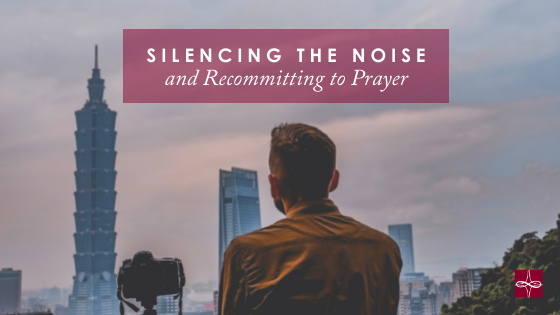

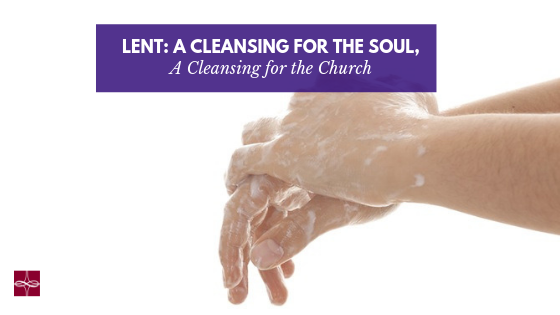

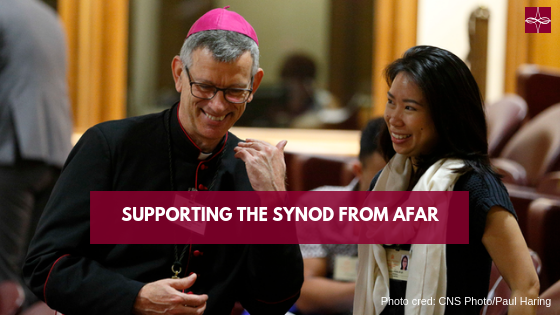

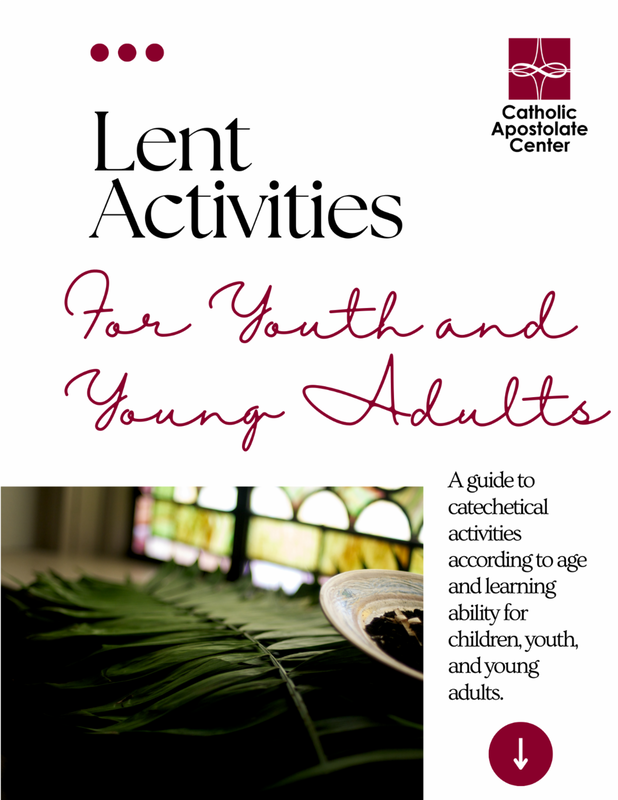
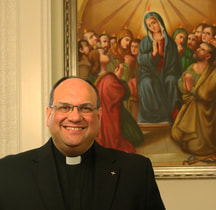
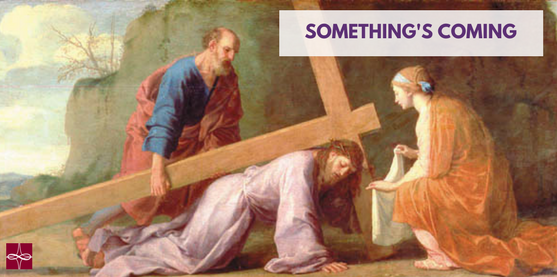



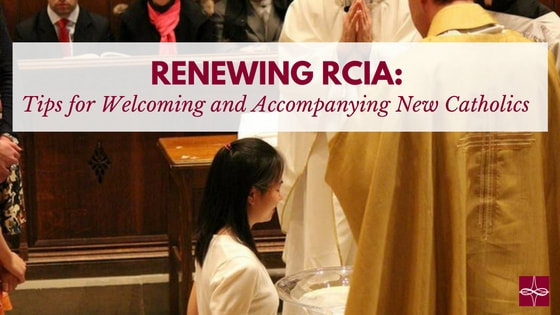






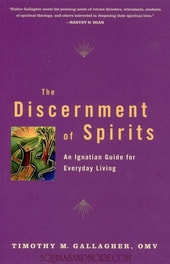
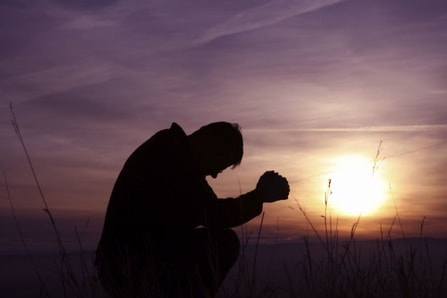



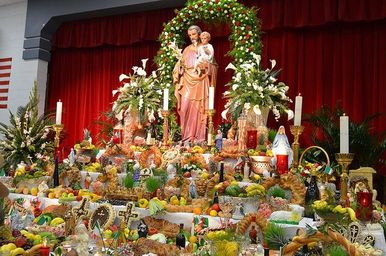



 RSS Feed
RSS Feed